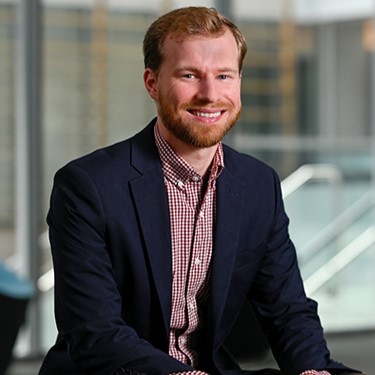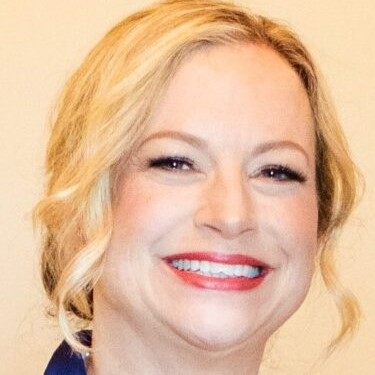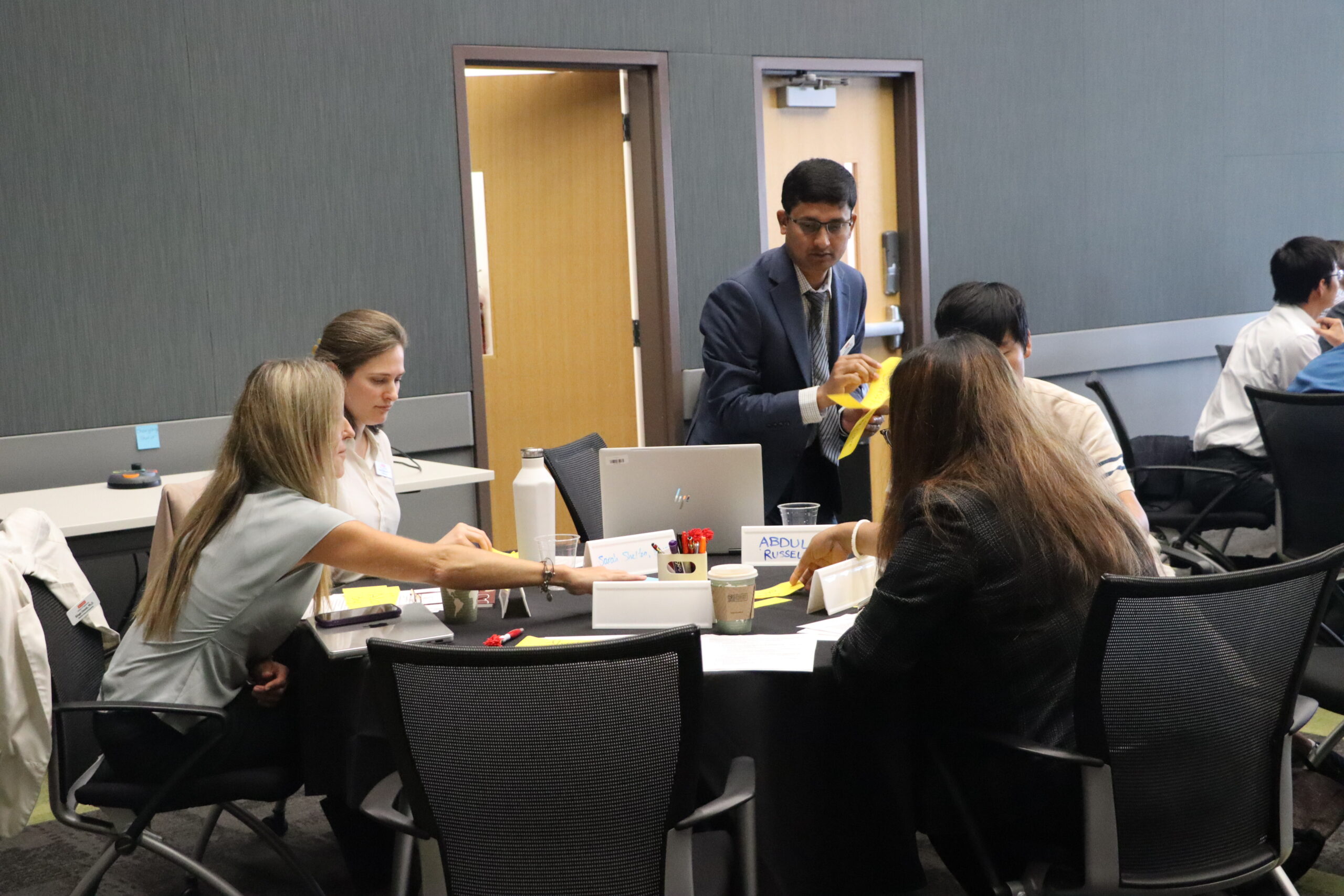Unlocking Award Opportunities: Insights from the Provost’s Office
Hear insights from Kyle Miskell and Sherry Bailey of the Office of Faculty Excellence on navigating the awards process and enhancing recognition opportunities for COE faculty.

This month, we reached out to Kyle Miskell, the Director of External Awards, and Sherry Bailey, the Internal Faculty Awards Coordinator from the Office of Faculty Excellence (OFE) in the Provost’s Office. They both have extensive experience in the awards process and are well aware of the complexities of awards applications. To help our College of Engineering faculty secure recognition, the Office of Faculty Development and Support (OFDS) posed a series of questions to Kyle and Sherry. Read on to discover their expert advice and strategies to enhance your chances of receiving awards and amplifying the impact of your work.
General Information
- What common traits or attributes do successful award applications share?
SB: Successful award applications adhere closely to the submission guidelines and are presented in a clear, easy-to-read format. - Can you identify any common pitfalls or mistakes that faculty should avoid when applying for awards?
SB: Common mistakes include submitting sloppy documents, failing to address the correct prompts, or hastily assembling the package without seeking feedback from others. - How important is it to tailor an application to the specific award?
SB: It’s crucial to respond to prompts in a way that clearly demonstrates you meet the criteria they’re seeking. Be sure to carefully review the award description and align your submission with the key descriptors. Review committees frequently refer back to the award description, especially when deciding between nominees. They often ask, “Which nominee best embodies the essence of the award?”
Preparation and Strategy
- What is the best way to approach the preparation of an award application? Are there specific timelines or steps that should be followed?
KM: I’ve found starting three months before the deadline offers the best timeline – far enough in advance to plan accordingly, but not too close where inevitable issues derail a nomination. The first step should be securing strong letters. The letters of recommendation are often the biggest hurdle with nominations, not only because people are busy, but also due to guidelines that ask for letter writers to be current members, or former recipients, or not affiliated with the same university, or limiting how many applications they can be involved in. So getting those details settled early avoids headaches closer to the due date. Also, be sure to check all eligibility requirements at the beginning, including membership, career stage, and limited submission that
SB: Start early—don’t wait until the last minute to begin your submission. I often recommend making your first step requesting support letters. Be sure to give your letter writers plenty of time to craft their responses. - How can faculty effectively gather and present their achievements and contributions for an award application?
KM: Often, you only have so much space to share your story, so use it wisely. Think of ways you can utilize the various submission materials to offer a holistic story. For example, if there is a detail you are unable to include in your materials, have your letter writer include it. You can leverage the letters to offer information you might not be able to include otherwise.
Speaking of letters, recommenders often like for you to share a starting point they can build on. This offers an opportunity to have each letter focus on a different aspect of you and your research. Not only does this avoid the letters reading the same, but it also allows you to share your story in an effective and engaging way. Keep in mind that honorific award nominations are typically not the same as grant applications, so the audience and writing style will differ.
SB: Before you start compiling your documents, take time to identify the key aspects of your story you want to highlight. Write them down as a guide. Once your package is complete, review it to ensure it effectively showcases those highlights. Seek feedback from trusted colleagues—share your goals for the package and ask if they feel you’ve successfully conveyed them.
Understand your audience—many awards disclose the composition of their review committees. Tailor your submission accordingly. For example, avoid using acronyms that the committee might not recognize. If you’re highlighting an honor that may not be widely known, include a brief description to provide context.
Understanding the Process
- What factors are most heavily weighted during the evaluation of applications?
KM: Each recognition has plenty of eligible and deserving nominees. As a result, selection committees have the unenviable task of looking for reasons to advance, and not advance, a nominee. This is why following the directions are important, because it is one way award governing bodies whittle down nominations – a letter dated from a previous year, materials not in the proper format, not including all the information that is asked for. Be sure to follow the directions and timelines to give yourself the best opportunity. At the same time, award governing bodies are very eager to help, so if you ever have any questions or need clarification, don’t hesitate to reach out to them.
SB: This is entirely dependent on the specific award and the composition of the committee. - Are there specific criteria that committees look for in letters of recommendation?
SB: Most committees place significant weight on the support letters, so it’s important that these go beyond simply summarizing your CV. Encourage your letter writers to craft their letters with specific points in mind that align with the award criteria.
Feedback and Improvement
- How can faculty best seek feedback on their award applications before submission?
SB: Seek advice from previous award recipients if they’re accessible to you. Some award programs also provide examples of successful submission packages. - If an application is unsuccessful, what steps should faculty take to improve for future submissions?
KM: Be persistent! You won’t win every award you apply for. In fact, persistence is often built into the process – if an award has multiple years of eligibility, they may privilege a nominee in their final year as opposed to one in their first. That means it will take multiple cycles to advance. Always keep in mind that just submitting a nomination is an accomplishment in itself and sets you up for the next cycle or next award. Also, while governing bodies don’t always offer feedback, some do, and it might be worth asking if they are willing to provide any.
SB: Some award programs offer feedback—don’t hesitate to ask if it’s available. Additionally, many award recipients achieve success only after multiple attempts. It’s perfectly fine to resubmit in future years.
Networking and Resources
- Are there any specific support resources or workshops at NCSU that can assist in the award application process?
KM: The Office for Faculty Excellence offers resources for awards in general, and submission support for those that are designated prestigious and highly prestigious by the National Research Council. But the best resource are fellow faculty – those who have previously been recognized as well as those that have served on selection committees. As part of building a culture of recognition, it is important for faculty to discuss opportunities among themselves and at their annual review with their department head, to nominate colleagues for awards, and to identify aspirational peers to see how they’ve navigated awards throughout their career. Ask a colleague if they would be willing to share their submission or review yours. And then pay it forward in the future.
SB: Colleagues who have received the award you’re pursuing can be an excellent resource. - Can you suggest networking strategies that may help faculty increase their visibility and chances of receiving awards?
KM: Get involved in your professional organizations, from attending conferences to serving on committees. This has multiple benefits: introduces you to colleagues in your field; elevates your status; and sets you up for recognitions specific to service.
Speaking of, maintain your memberships! To be eligible for recognitions, you often must be a member of that organization. Not only that, but your letter writers and nominators must also be members. So when you maintain your memberships, you’re not only helping yourself but also your colleagues and college.
SB: Many internal awards require a nomination from your college. Make sure to express your interest so others are aware you’d like to be considered.
Closing Advice
- What advice would you give to new faculty members regarding navigating the awards process effectively?
KM: You can’t win an award you don’t apply for, and you can’t apply for an award you don’t know about. So take the time to learn of the opportunities within your discipline and career stage. There are plenty of opportunities specific to early career faculty – be sure to check them out while you are eligible. It is good practice to create a calendar of opportunities so you know what is due when and can plan accordingly – not only in the next year but the next several years. This includes internal awards specific to NC State. Think of awards as a pipeline, where internal lead to external, and department and college level lead to university level. And as always, talk with colleagues in your department and college, including your department head.
SB: Begin your applications early, seek guidance, and have others review your package. - Are there particular awards that you recommend faculty target based on their discipline or focus area?
KM: Every award is of value, as one leads to the next. A couple of opportunities to consider: higher education institutions often offer awards for alumni, so there might be opportunities from the institution you received your undergrad or graduate degree. Also, identify opportunities in professional organizations and societies within your field. Finally, Fulbright is a great opportunity for all faculty. It is unique in that it cuts across disciplines and career stages, can be focused on teaching or research, and does not require memberships.
Thank you to Kyle Miskell and Sherry Bailey for sharing their insights on the awards process with our COE faculty. Their expert advice highlighted the significance of pursuing recognition and the professional growth that comes with it. As we look ahead, we encourage faculty to stay connected with OFDE and the Engineering OFDS for upcoming opportunities and updates on awards. We greatly appreciate Kyle and Sherry for their time and expertise in helping guide our community toward continued success.

Kyle Miskell
Director of External Awards
kpmiskel@ncsu.edu

Sherry Bailey
Internal Faculty Awards Coordinator and Faculty Support Specialist
sbbailey@ncsu.edu
- Categories:


